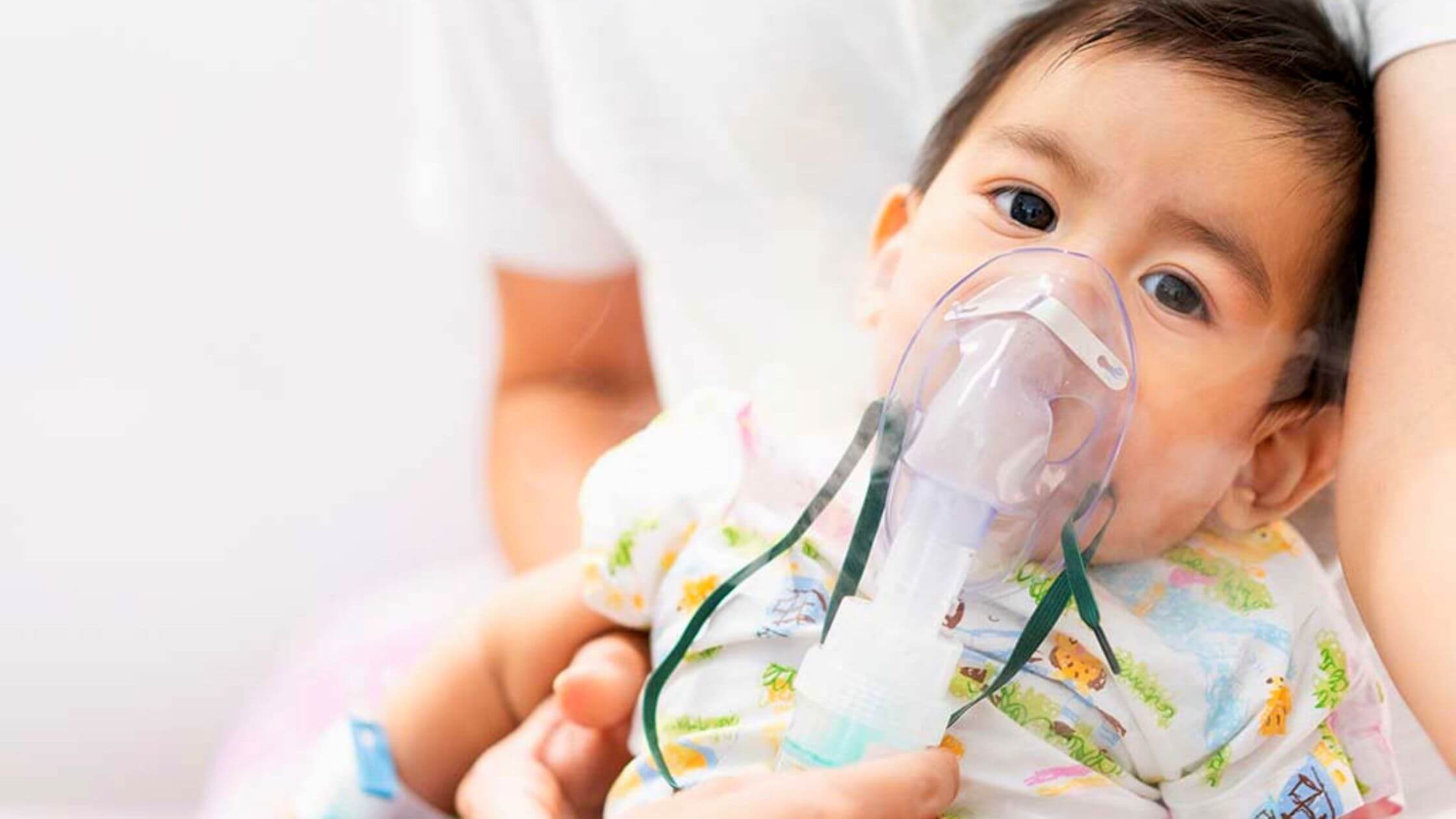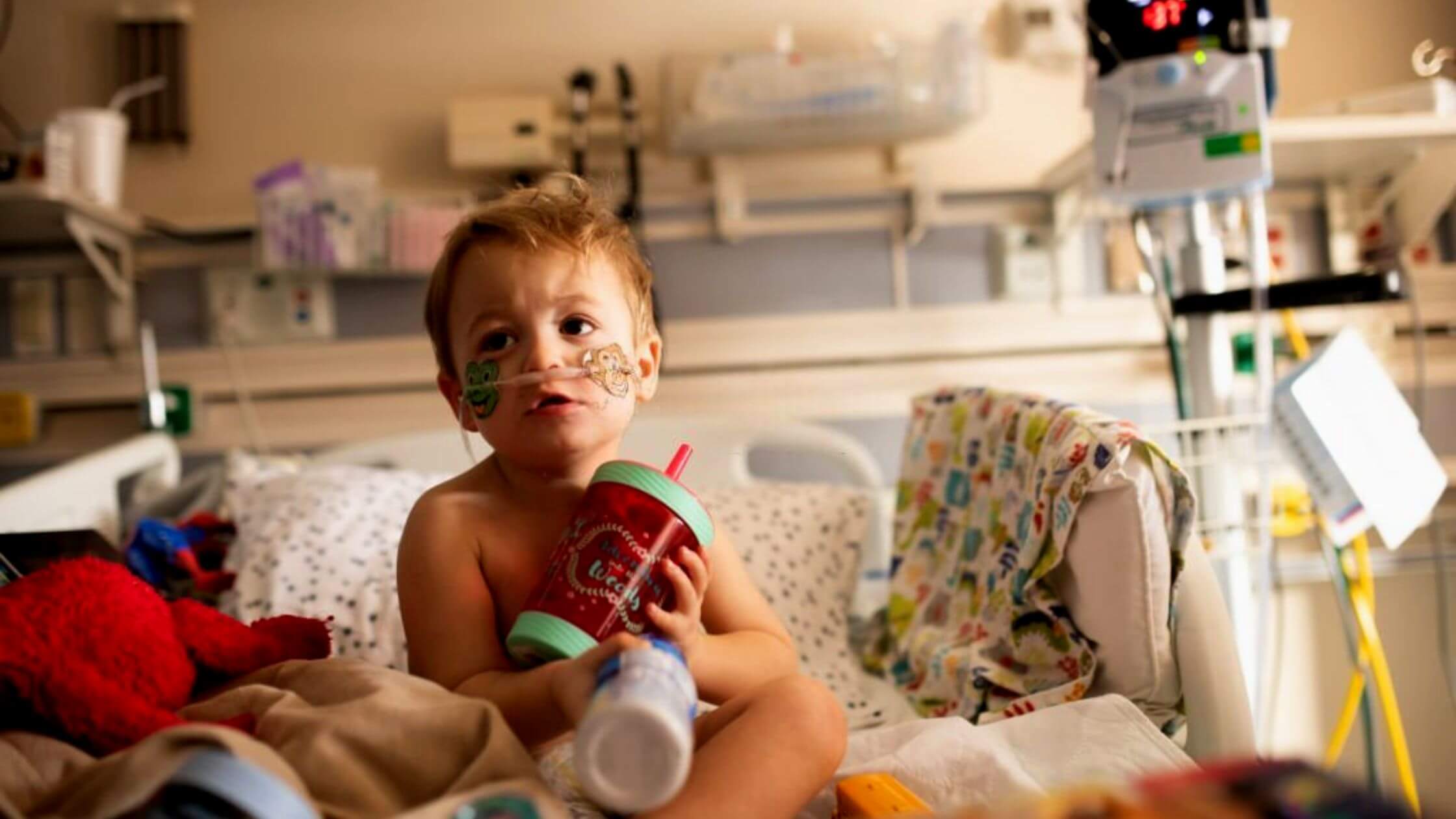RSV or Respiratory Syncytial Virus is a seasonal lung infection that mainly affects the lower respiratory tract of children and adults. It is considered to be a fairly common disease seen in children.
RSV is highly contagious and symptoms range from a mild cold, runny nose, fever, coughing, or sneezing to highly dangerous ones like pneumonia and bronchiolitis.
The more dangerous symptoms are mostly observed in kids and adults with preexisting conditions of the lungs and heart and also in kids with weakened immunity responses.
How Is It Transmitted?
RSV is mainly transmitted through infected droplets and these are mostly exhaled out into the open by an infected person.
They survive on hard surfaces like table tops, benches, chairs, etc for longer hours and also survive on our soft surfaces like hands for short hours and in the process infect other kids.

RSV is easily transmitted from adults to children like other infections that can trigger bronchiolitis. Children who are infected with the virus can be contagious for up to 3 to 8 days and in certain cases with kids who have weak immunity, the virus can stay contagious for up to 4 weeks.
Precautions
For the above reasons, parents and caretakers are asked to take extra precautions during the seasonal spread of RSV. Some of the basic precautions to be taken are:
- Anyone who comes in contact with kids and babies should always wash their hands with soap for a minimum of 20 seconds.
- Keep the environment of the kid hygienic.
- Smoking is dangerous for all people and it is the same for babies and kids too. So keep them away from smokers.
- Don’t kiss the baby if you are having cold symptoms.
- Always wash the toys and other intimate objects of the baby to keep them clean from infections.
- Day-care timings should be limited for babies and kids, especially from late fall to the beginning of the spring season, this is the time when the RSV is most active.
- Do not encourage anyone to take the baby to a crowded place.
These are some preventive measures that can be taken to keep RSV at bay. Other than these, at-risk babies and children can be given a drug called Palivizumab to prevent severe illness caused by RSV.
This drug cannot cure children who are already having severe illnesses caused by RSV. It is also not used as preventive medicine against RSV.
Consult your healthcare provider for more details on this medication. Breastfeeding the kid is also an effective method to build resistance to the virus as breast milk contains antibodies and other immunity-boosting nutrients.
For a kid above 2 years, no such antibody treatment is given as their bodies would have the immunity to fight off the infection with the assistance of some drugs that will help clear their airways and to improve breathing. Since RSV is a virus, antibiotic treatment is not possible.
It is mostly seen as a mild infection and is treated on par with the grade of a common cold. In kids and adults with a healthy immune system, RSV isn’t considered a threat.
According to the Centers for Disease Control and Prevention, around 2.1 Billion outpatients (children under the age of 5) recorded in the U.S who had RSV infections.
14000 deaths in adults aged 65 and above and 100-300 deaths in children under the age of 5 have also been recorded.
The U.S Department of Health and Human Services warns of the advent of the RSV virus every year during fall, winter, and spring.
This has been further divided into three stages of infection called RSV onset (mid-September to mid-November), RSV peak (late-December to mid-February), and RSV offset (mid-April to mid-May).

